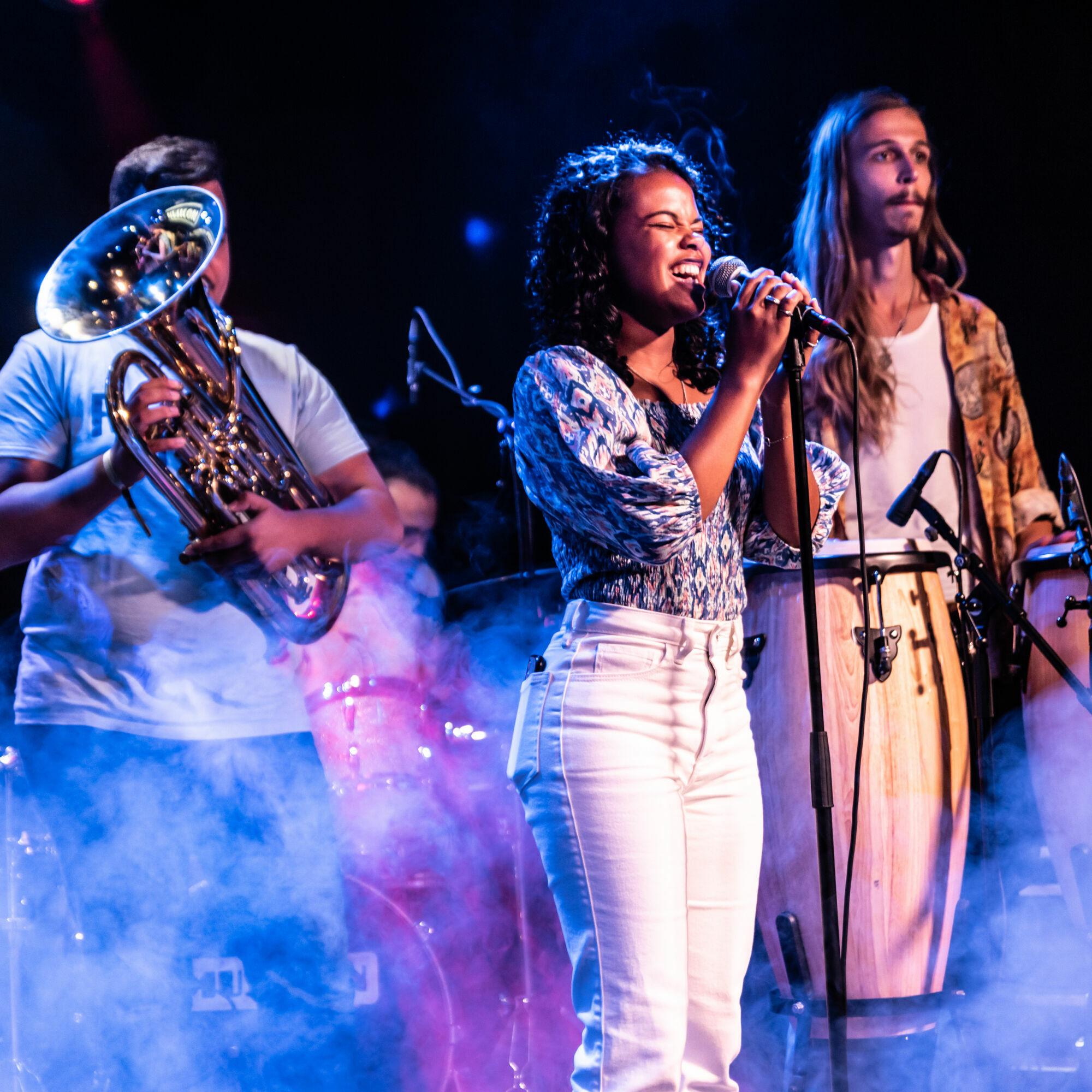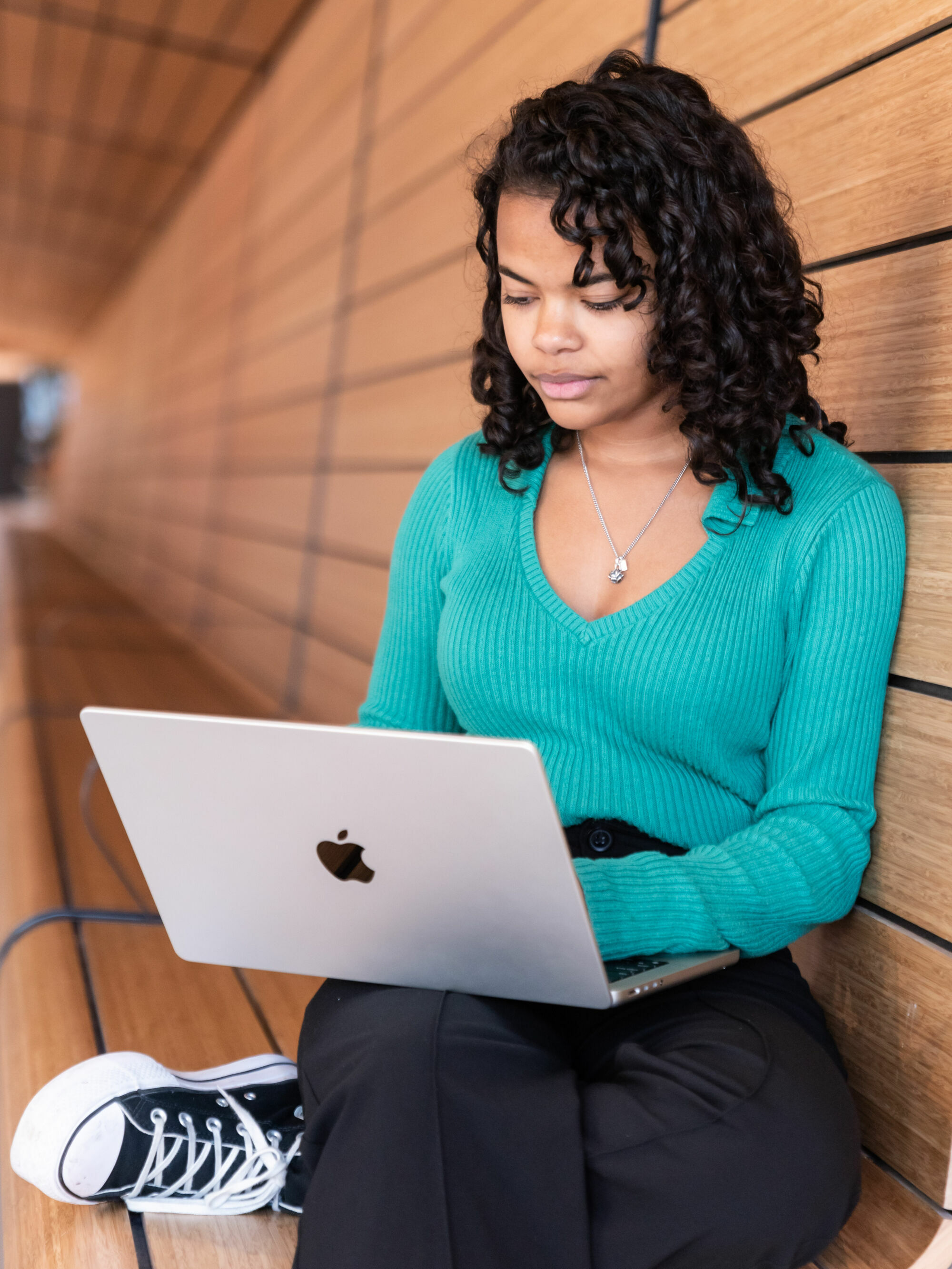Amber van Iperen is a third-year student in the Bachelor of Music Education programme. Her ambition is to inspire others as a singer and teacher. She wants to learn as much as possible about as many subjects as possible. "I want to pass on what I know. Inform people." In this interview, Amber explains how her studies are helping her to discover where her passion lies.
"I have always been singing with my family and grandmother. Music was one of the subjects for my final exams in secondary school. My music teacher was lovely. She inspired me enormously. It was through her that I started thinking I would like to be a teacher too. Like everyone else in the class, I always really enjoyed the lessons. I want to allow others to experience that pleasure for themselves.
What appeals to me about being a teacher is connecting with others and playing an important role in their lives. As an artist, you can also reach others. How you play music greatly influences the effect, it has on the audience. I am not following this study programme just for myself but also to pass on what I know. Inform people. I hope to transfer my enthusiasm and inspire others to feel the same excitement for something they may not have thought about before.
Every Monday morning, all of the students in the Vocal department sing in a choir. One of my favourite projects is Choirweek in December, for which we spent an entire week rehearsing. We perform those concerts in unique locations where we can make a social impact, such as a prison or a children's hospital. In this way, we bring music to people who might not hear it every day but would benefit more than most. At times like this, you see just how much pleasure music can give.

Broad curriculum
The Music Education curriculum covers a wide range of subjects. We're taught to teach a variety of audiences in different environments. Some lessons are practical, such as the choir and ensemble singing classes, which all the students follow together. But we also study music theory, learn to write notation and record music, and are taught specific teaching methods tailored to primary and secondary schools and lessons outside the classroom. Every day is different. There are usually four or five classes a day, but there are also many projects and work placements.
The diversity of the courses keeps me on my toes. When I graduate, I will know a variety of subjects. When I started the course, I needed to figure out what musical direction I wanted to follow. However, the curriculum is so broad I hope that by the time I reach the fourth year, I will have tried everything and will know what I like best and want to do in future. It is an excellent time to learn where your heart lies regarding music. When I become a teacher, I want to be able to do anything that is asked of me.
Development as an artist
I will continue studying after completing this Bachelor's programme. I want to develop further as an artist. I want to gain some experience as a performer in a professional environment before I stand in front of a class. That experience can only help me in my teaching.
There is also a strong focus on my development as a singer in the Music Education study programme. My main subject is singing, and I have one-on-one lessons with my singing teacher every week.
The department also organises numerous projects which allow us to perform. Those projects concentrate on how I perform and who I am as an artist. Many lessons are designed to show how to use musicality in your teaching. You're not just a teacher but also a musician. The programme teaches us how to combine both of those roles.

A close-knit group
I can discuss everything with the other students. I can turn to them if anything is bothering me. We also learn a lot from each other by discussing our ideas and projects.
The students in the Music Education programme form a very tight-knit group. We go on a week-long trip every year. This year we went to Antwerpen. The entire week is devoted to art disciplines other than music: film, theatre, visual arts or dance. The trip also gives us the qualifications to teach Cultural and Artistic Education in secondary school. Because the cultural trip is always at the start of the school year, it can be a little nerve-wracking for first-year students, but everyone gets to know one another very quickly. There are also not that many students in the programme – usually no more than ten students in a class.
The open day I attended was held online due to the pandemic. Even so, I could tell immediately what a great atmosphere there is in the department. That's why I chose to study in The Hague. I was able to talk to the department's coordinator and two students, and I could tell at once how close the relationship between the students was and how well they got on with the coordinator."
Interested? Go to our 'Apply now' pages for more information about the Royal Conservatoire and Bachelor of Music in Education.







